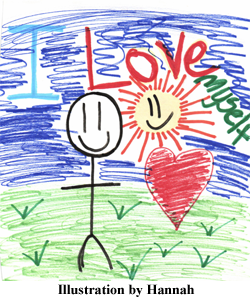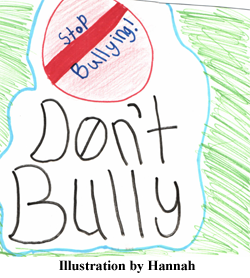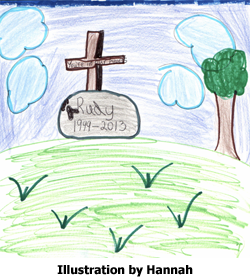 Picture this scene: While walking down the hall at the school where I was teaching, I came face to face with an eighth grade student who had transferred out of my class the previous quarter. Curious about her transfer, I stopped her and the conversation went like this: “Why did you transfer out of my class?” She replied: “I don’t like you!”
Picture this scene: While walking down the hall at the school where I was teaching, I came face to face with an eighth grade student who had transferred out of my class the previous quarter. Curious about her transfer, I stopped her and the conversation went like this: “Why did you transfer out of my class?” She replied: “I don’t like you!”
To say the least, I was a little taken back by her abrupt reply, even though I wasn’t naïve enough to think that every teenager in my class was madly in love with me. However, up until now, no one had ever point blank told me so to my face. A glutton for punishment, I pressed her for more information: “What is it that you don’t like about me?”
Placing her hands on her hips while swerving them from side to side, and rolling her big eyes at me, she bluntly said “Lady, there ain’t nothing about you that I do like!”
Whoa!! My hands tighten up in a fist, blood rushed to my face, and a response to her began to form in my feeble mind: “Why, you little sassy, fourteen-year-old brat.” “How dare you talk to me like that!” “I’m going to smash your little smart aleck face in, pull those rolling eyes of yours right out of their socks, and knock your little swerving hips right out of commission!!” “That will teach you to be disrespectful to teachers.”
As I was thinking on acting out those thoughts, I suddenly caught a glimpse of myself behind bars, prison bars that is, for assaulting a child. So, I just mustered up a fake smile to her, and continued on my way.
As I walked on down the hall to my next class, my thoughts flashed back to an encounter I had had with myself a few years earlier. Alone in my bedroom one cold, rainy night, I had gazed into the mirror on the wall and uttered the exact same words that this fourteen-year-old had so bluntly spoken to me: “I don’t like you.” As I stood there, looking at my 40-year-old-face, I admitted for the first time in my life that, not only did I not like myself, I had no idea who I was.
And my self-esteem? There wasn’t any in the mirror to be found.
“Self-Esteem, or Self-Worth,” as it is sometimes called, can be defined as how you feel about yourself, the opinion you have of yourself, or how much value you place on yourself.
To put it mildly, mine was at an all time low that night and I was at my breaking point. But something clicked inside of me, and I knew that if I were to be a mother to my two little girls and become all that God created me to be, I’d better find my way out of this maze.
And thus, over the next few months, I traveled back down a muddy road that I had traveled for years. As I retraced my tracks along that road, I viewed people whom I had allowed to mold and shape me into their image. Notice I said, I allowed; it was not a time to place blame; it was now a time to take responsibility for my own actions.
I even discovered that I had been a victim of my own low-key personality. Being a “don’t rock the boat kind of person,” I had avoided conflict at all extremes. In doing so, I became a yo-yo on a string, bobbling up and down, trying to please everyone around me just to keep a little peace and harmony. However, by avoiding conflict which needed to be addressed, I actually had created a false harmony. Not good for healthy relationships!
As my journey continued viewing hurts, losses, and circumstances that had played a role in my self-esteem spiraling downward for so many years, the muddy road suddenly became a clear path. Remember how Moses and the Israelites had walked across The Red Sea free of mud? I, too, could feel the mud being loosened from my life, and I began to walk on new territory that I had never walked on before.
The name of the territory? SELF-ESTEEM – GOD’S WAY.
Very simply put, this new territory embraced me with the truth of where my self-esteem should really be based and how it came about: It was on the cross that Jesus Christ gave the only accurate measure of our significance when He considered every single person on earth worth dying for.
When I tapped into that truth, the first thing I thought about was: “He ain’t no fickle-minded specimen of humanity who changes His mind about us moment to moment. His love is unconditional.”
Would you believe I now stand before the mirror in my bedroom and utter the words, “I like you!” Am I bragging on me? Not at all! Heaven knows I have plenty of flaws, but along with those flaws, I now have a quite sense of knowing I have much value, and I’m worthy of being loved, respected, and accepted just the way I am. After all, God bought the whole world just to get a piece of the treasure – you and I.
Oh, how I wish I could have an opportunity to meet up with the fourteen-year-old young lady who swerved her hips at me and told me just how much she disliked me. Instead of a clinched fist, I would say to her: “You are so special and valuable”
My friends, that is my prayer for all children. May, we as caring adults, build a foundation for them to develop SELF-ESTEEM, GOD’S WAY before they are 40 years of age like I was.
Join Hannah and me next week as we try to lay out some valuable tips in that plan.














